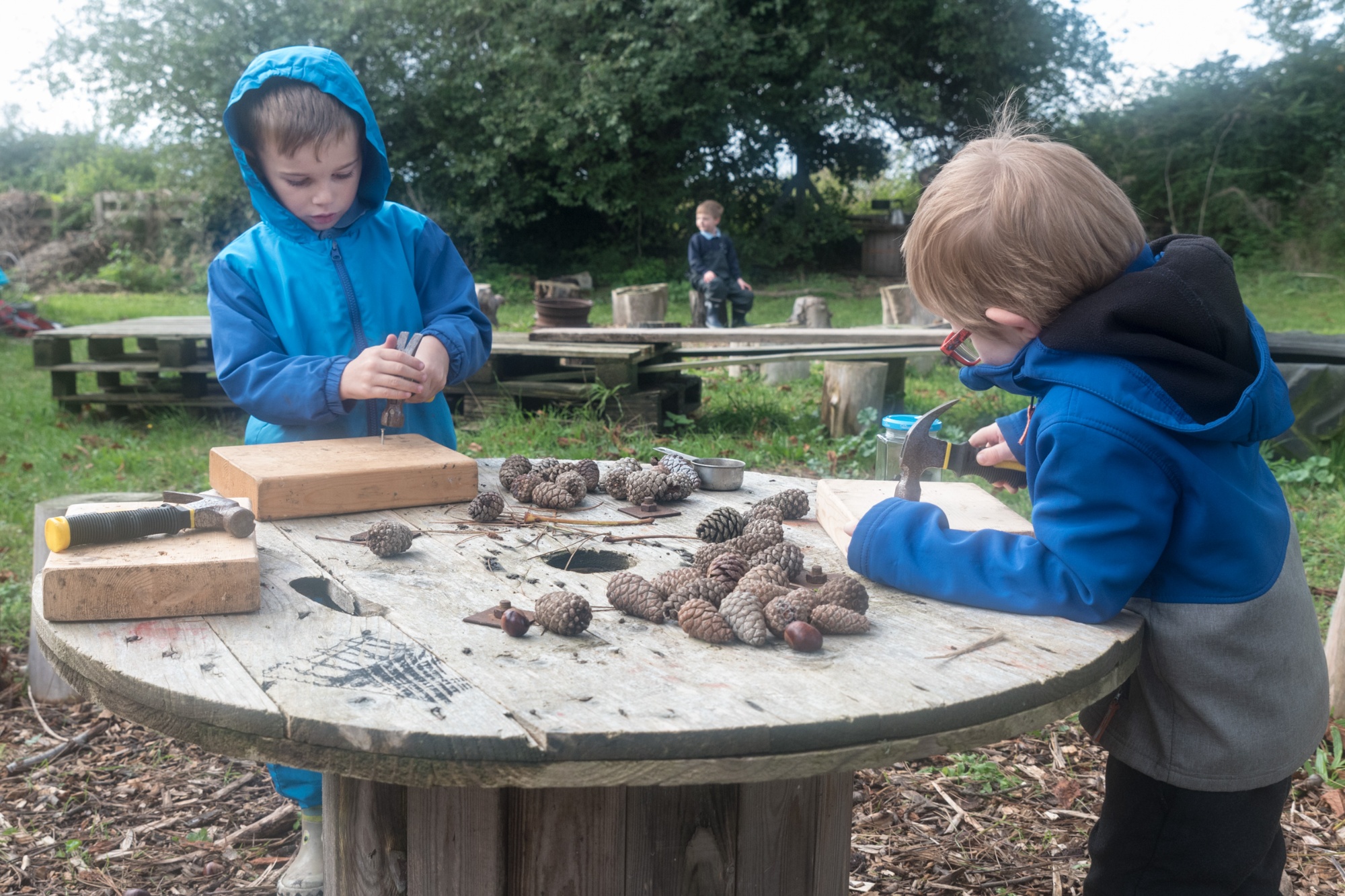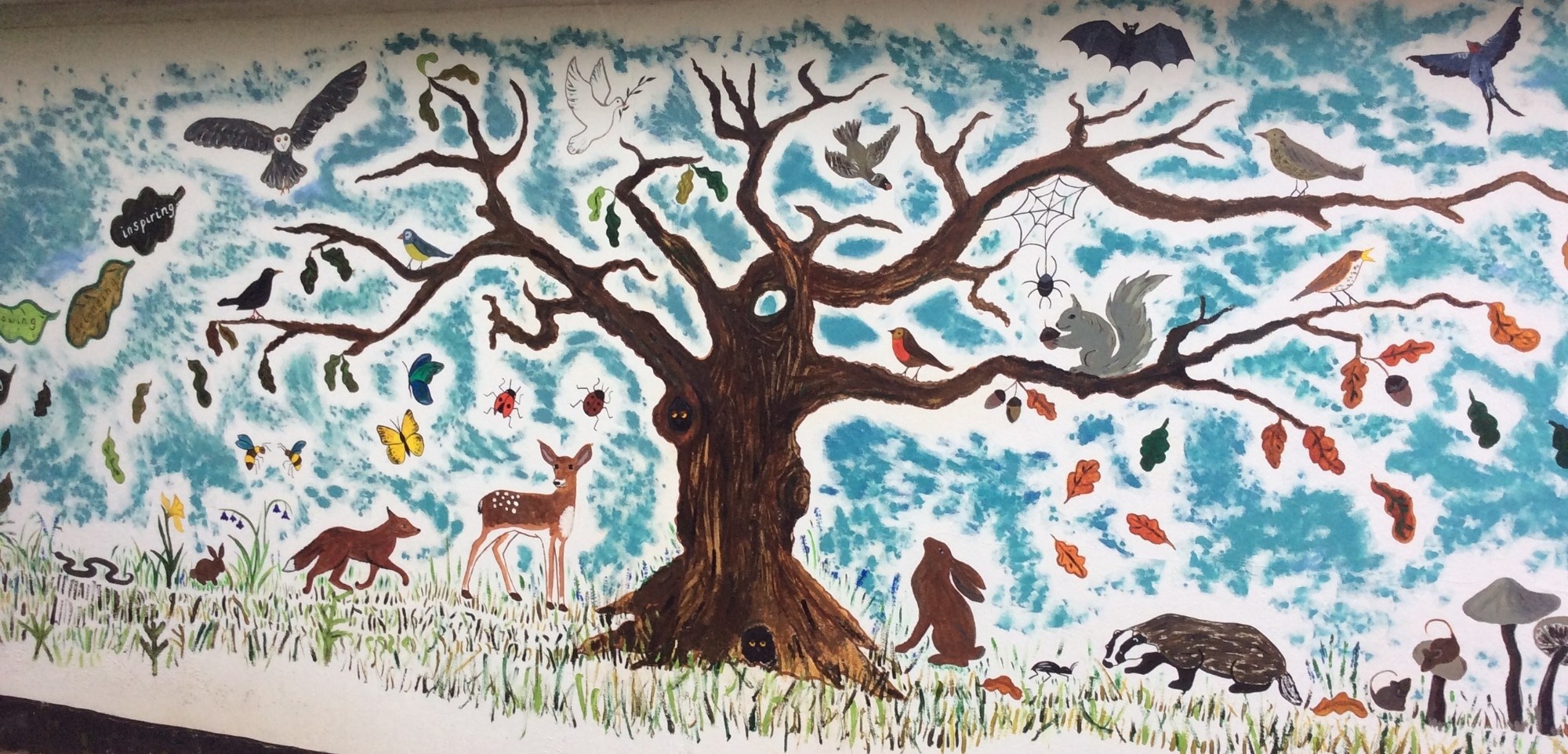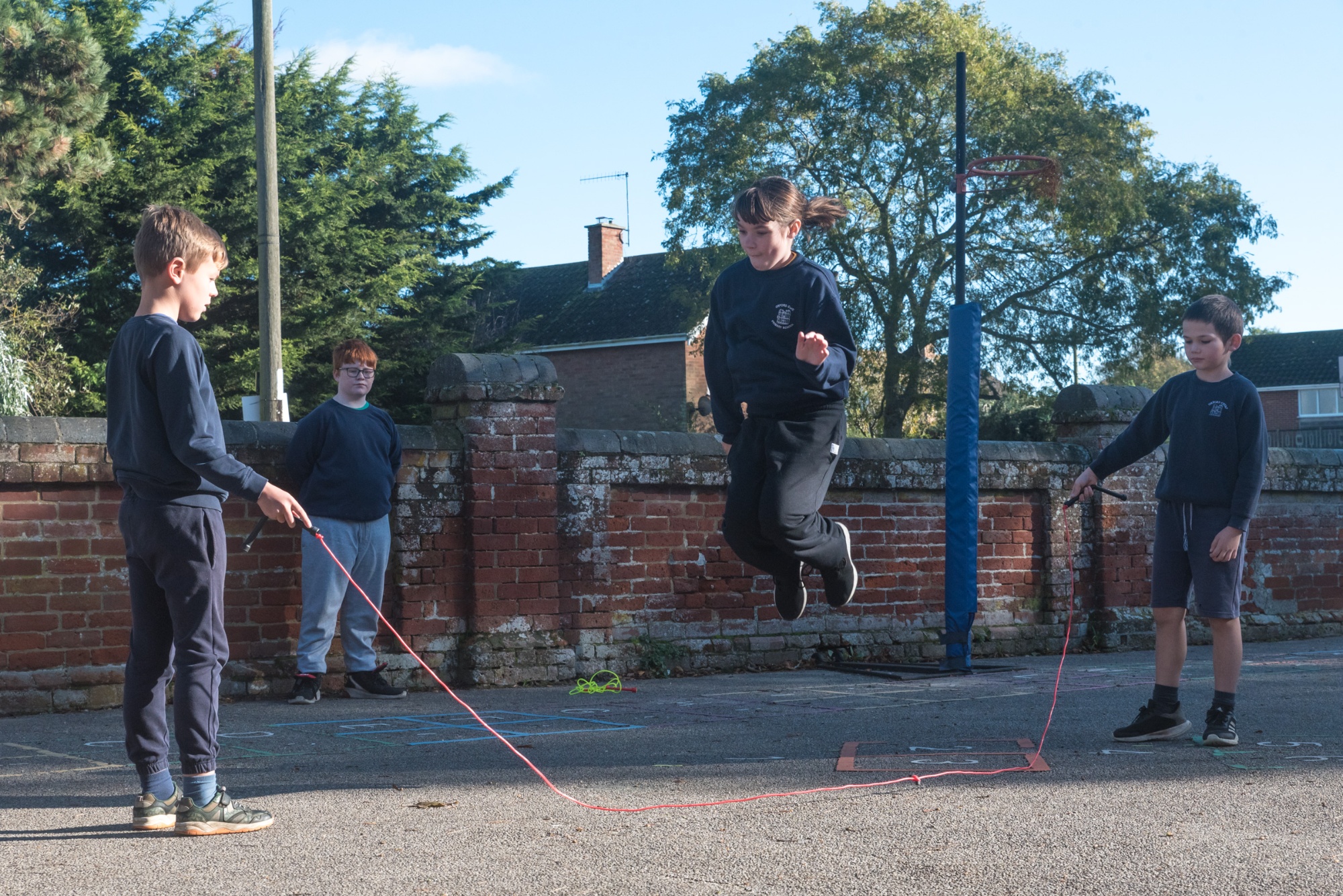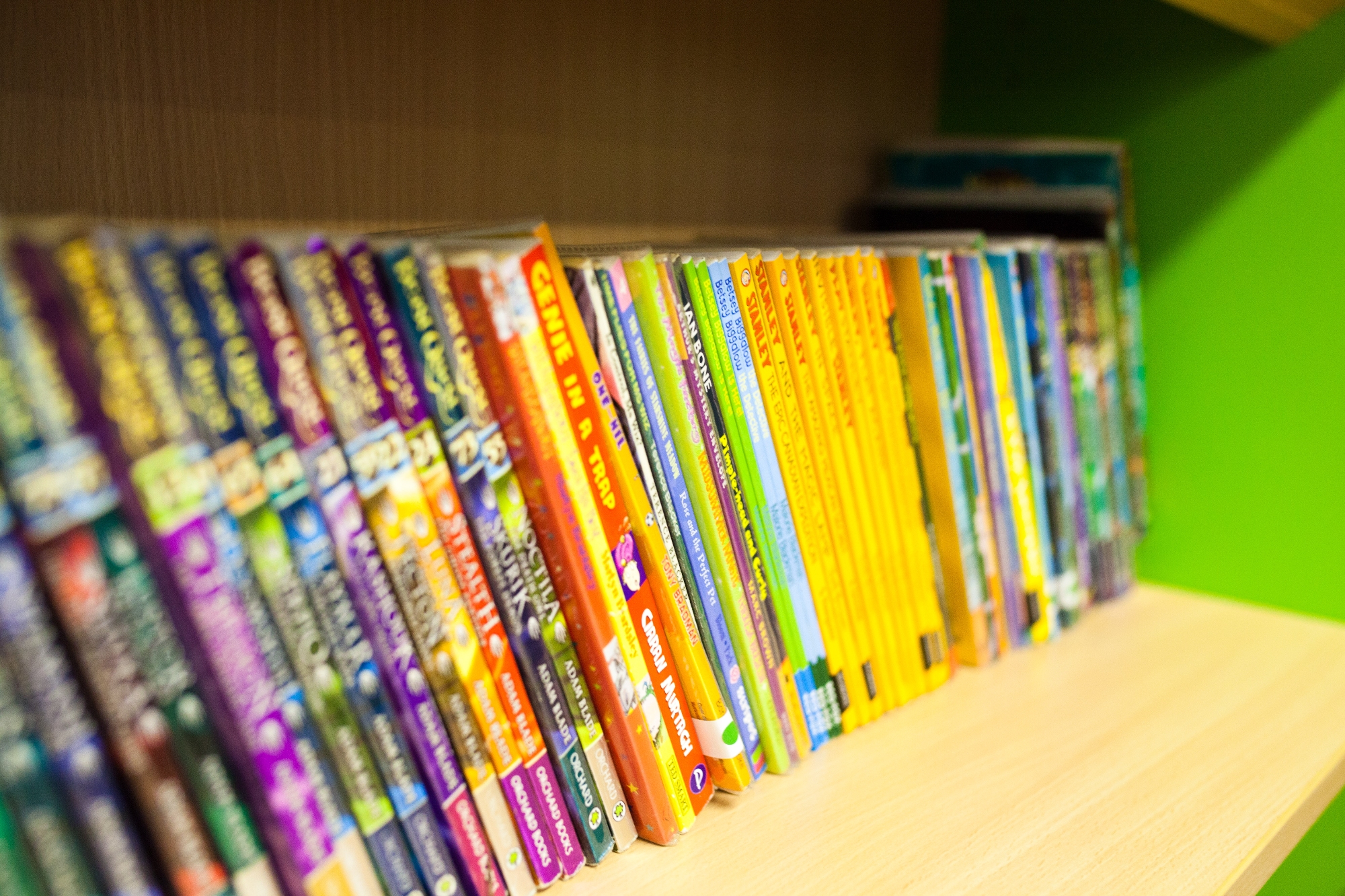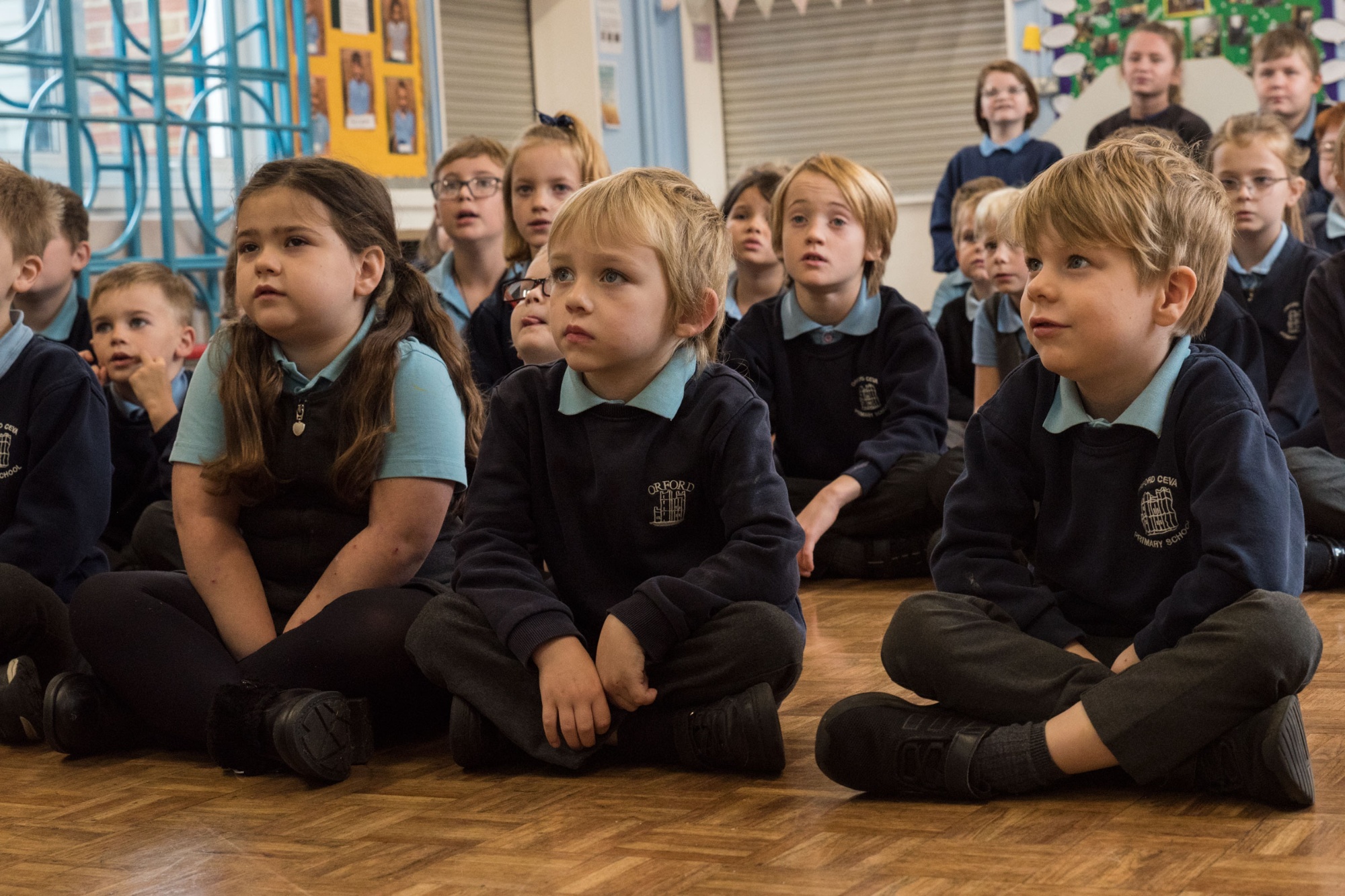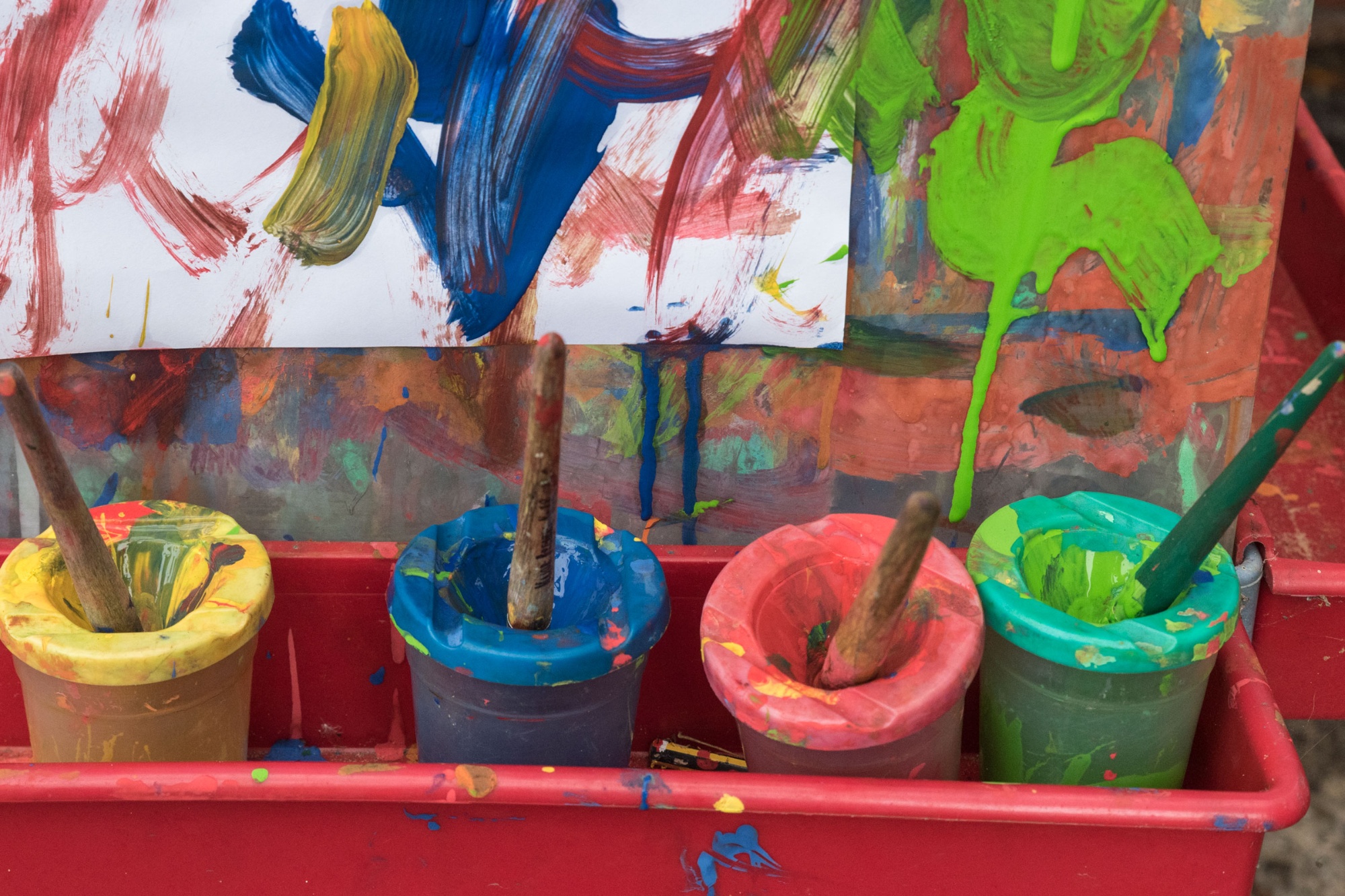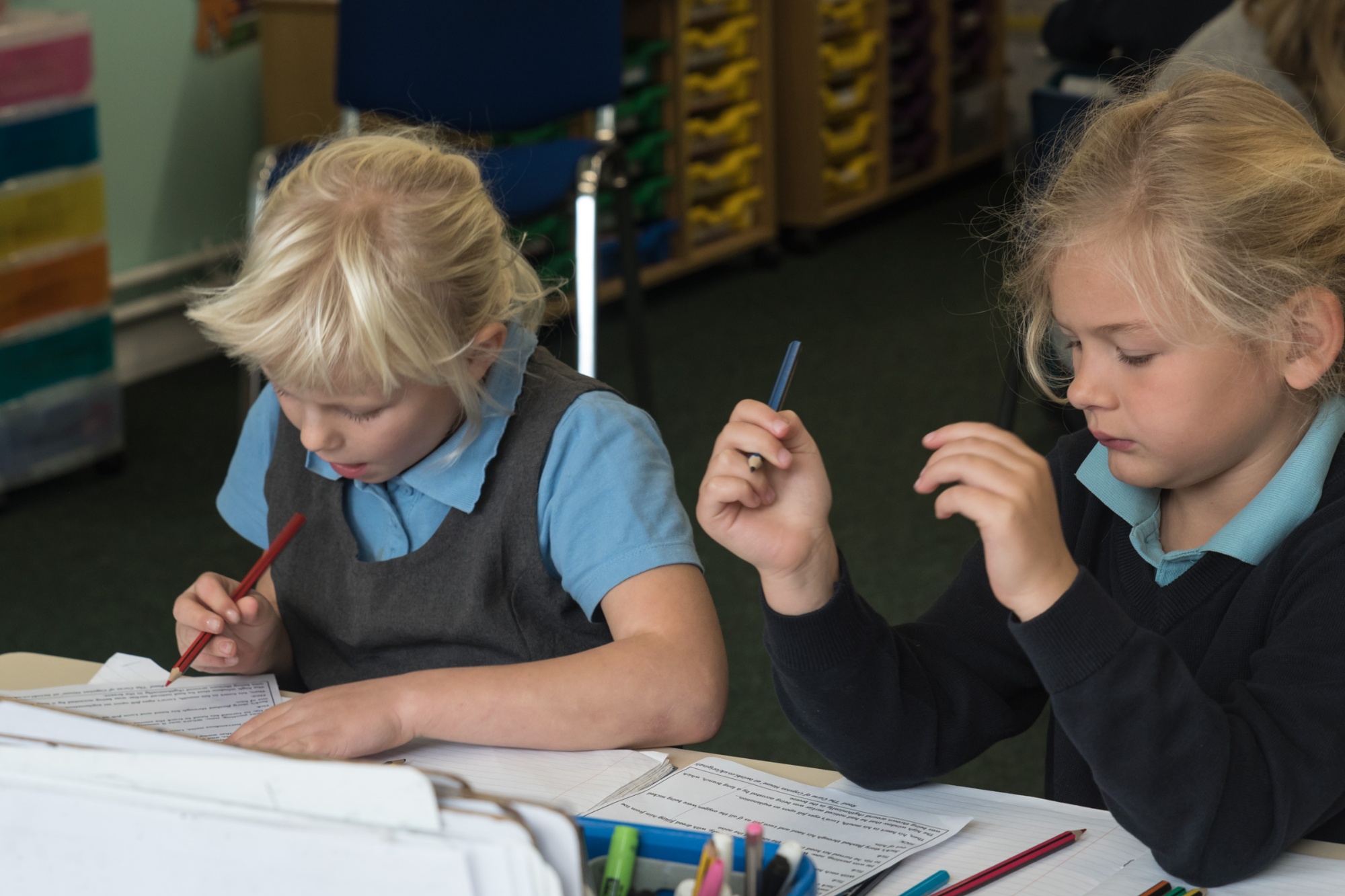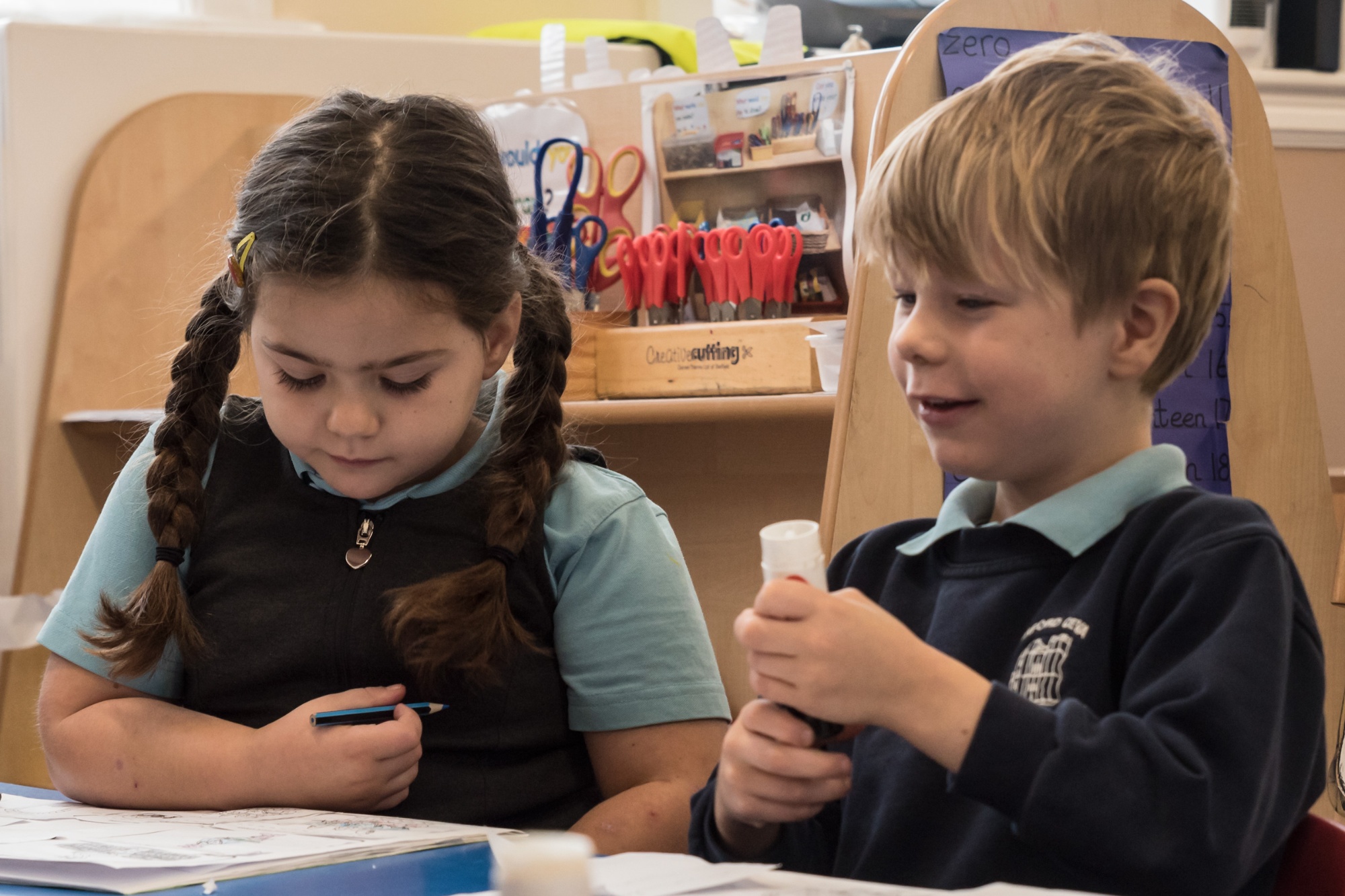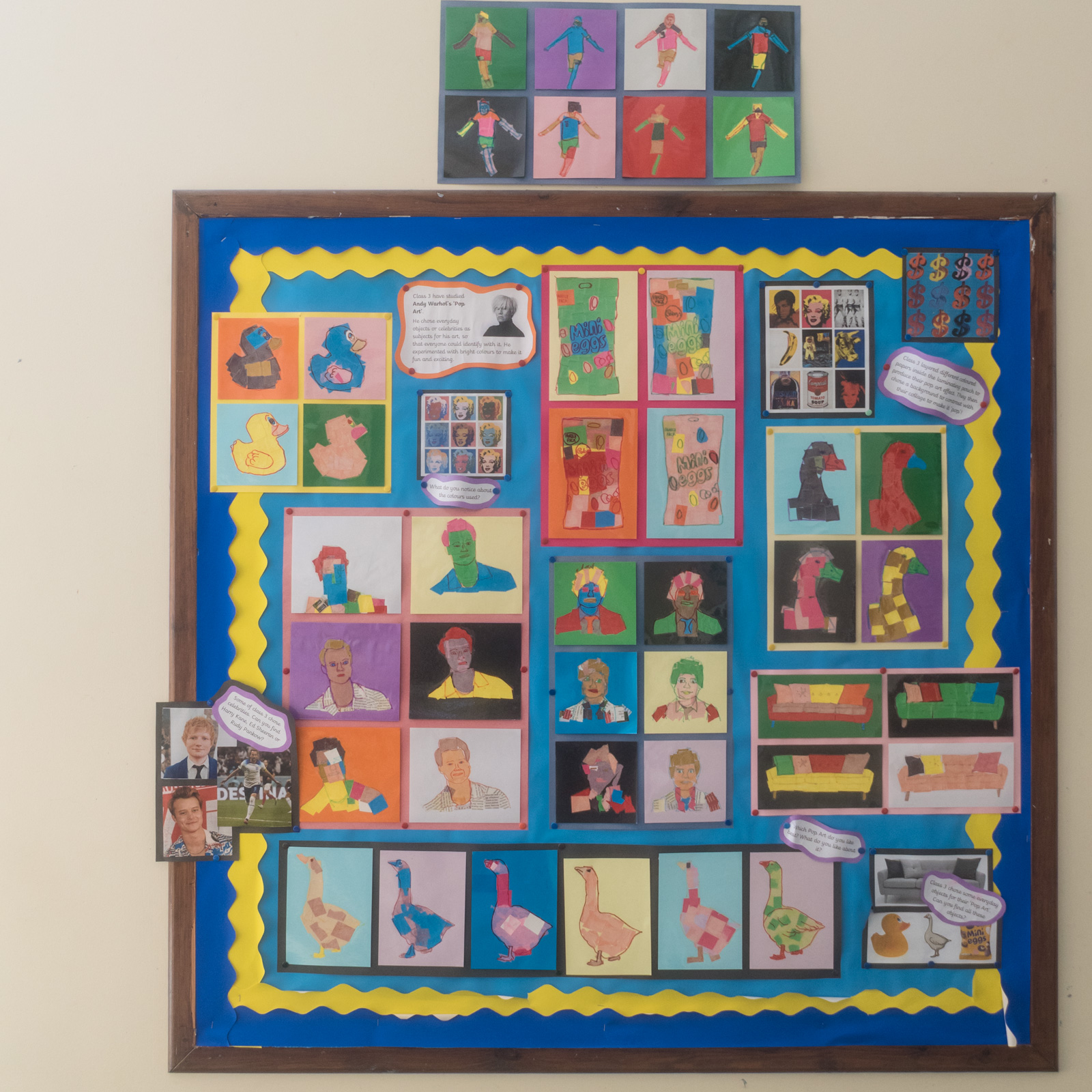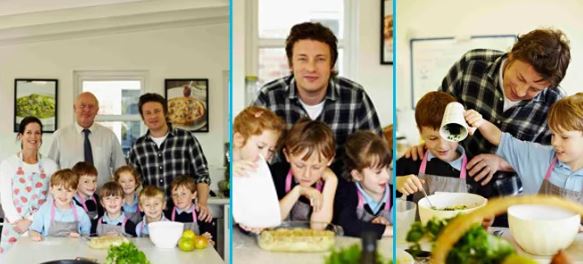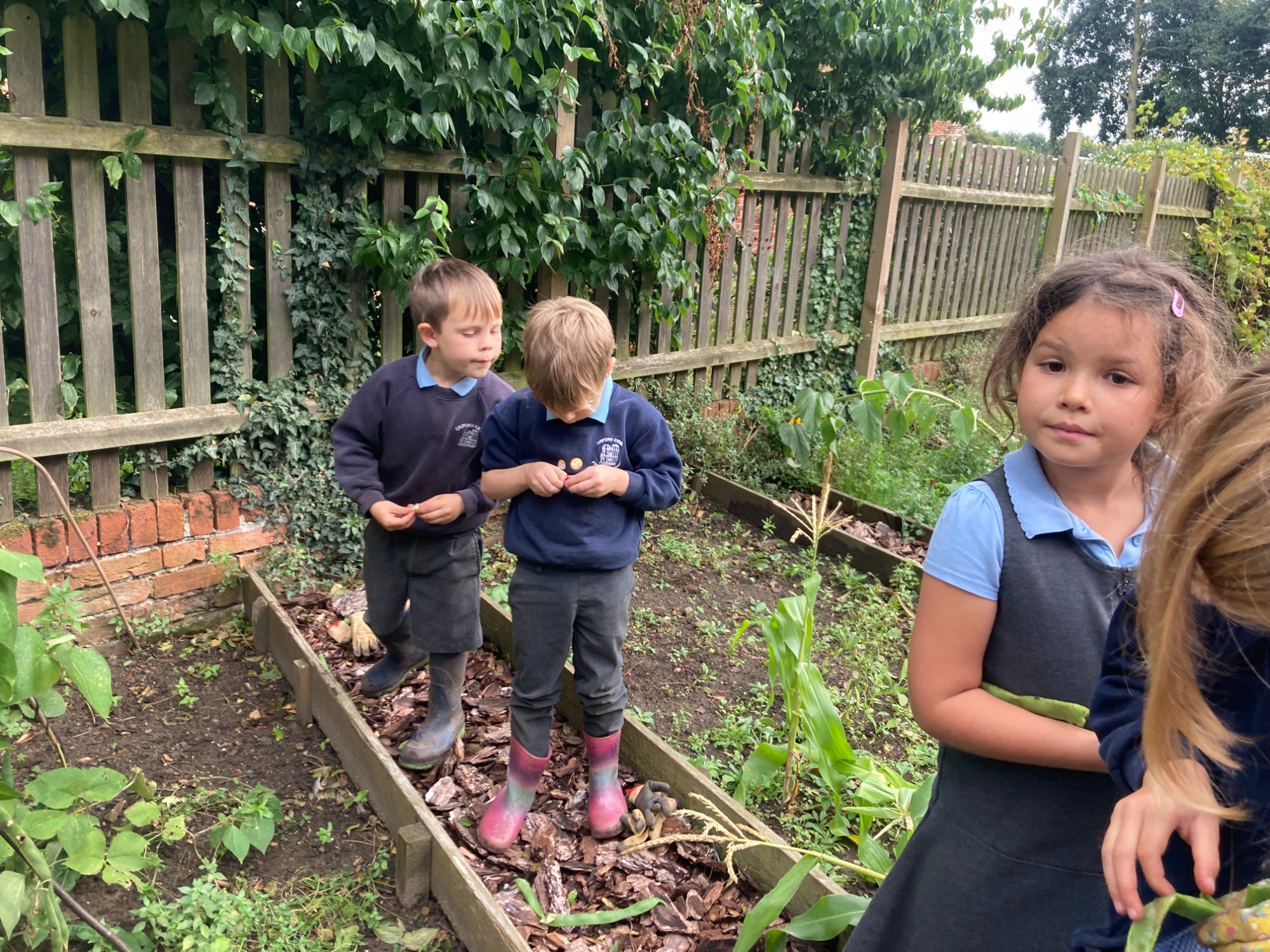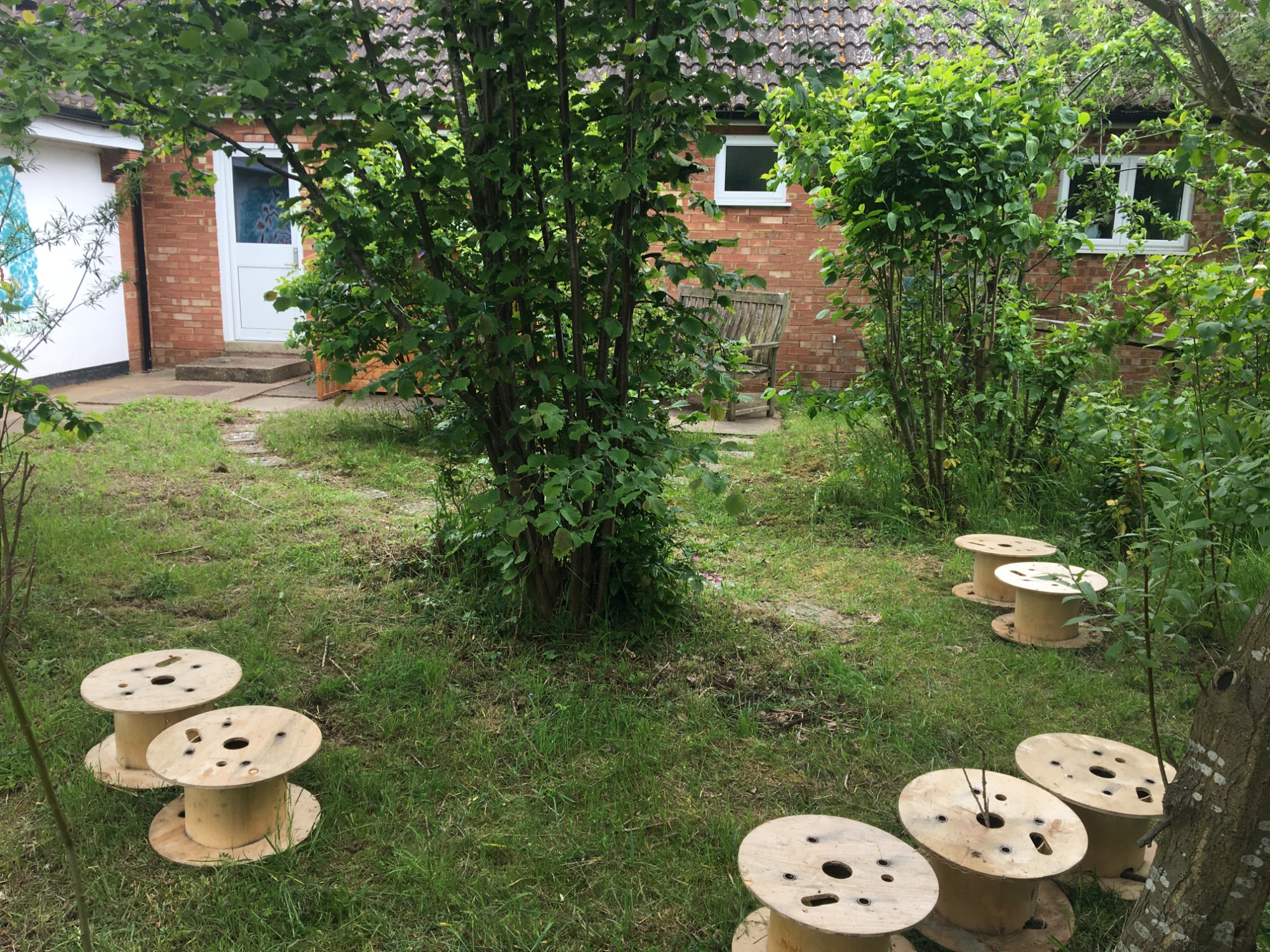The Teaching Kitchen and Garden
We are very lucky at Orford CofE School to have a dedicated teaching kitchen and extensive gardens.
Children take part in cooking activities from when they start school at the age of two, working in our dedicated Teaching Kitchen once every two-three weeks to prepare and cook food.
The knowledge and skills of our children exceed the expectations of the National Curriculum and hopefully provide them with a valuable life skill and a love of cooking nutritious, tasty food.
Every week classes 1 and 2 who are not cooking spend time in the kitchen garden, learning about plant life, developing skills in food production, land management and conservation.
They grow and harvest food to supply the teaching kitchen, and learn about the gardening year.
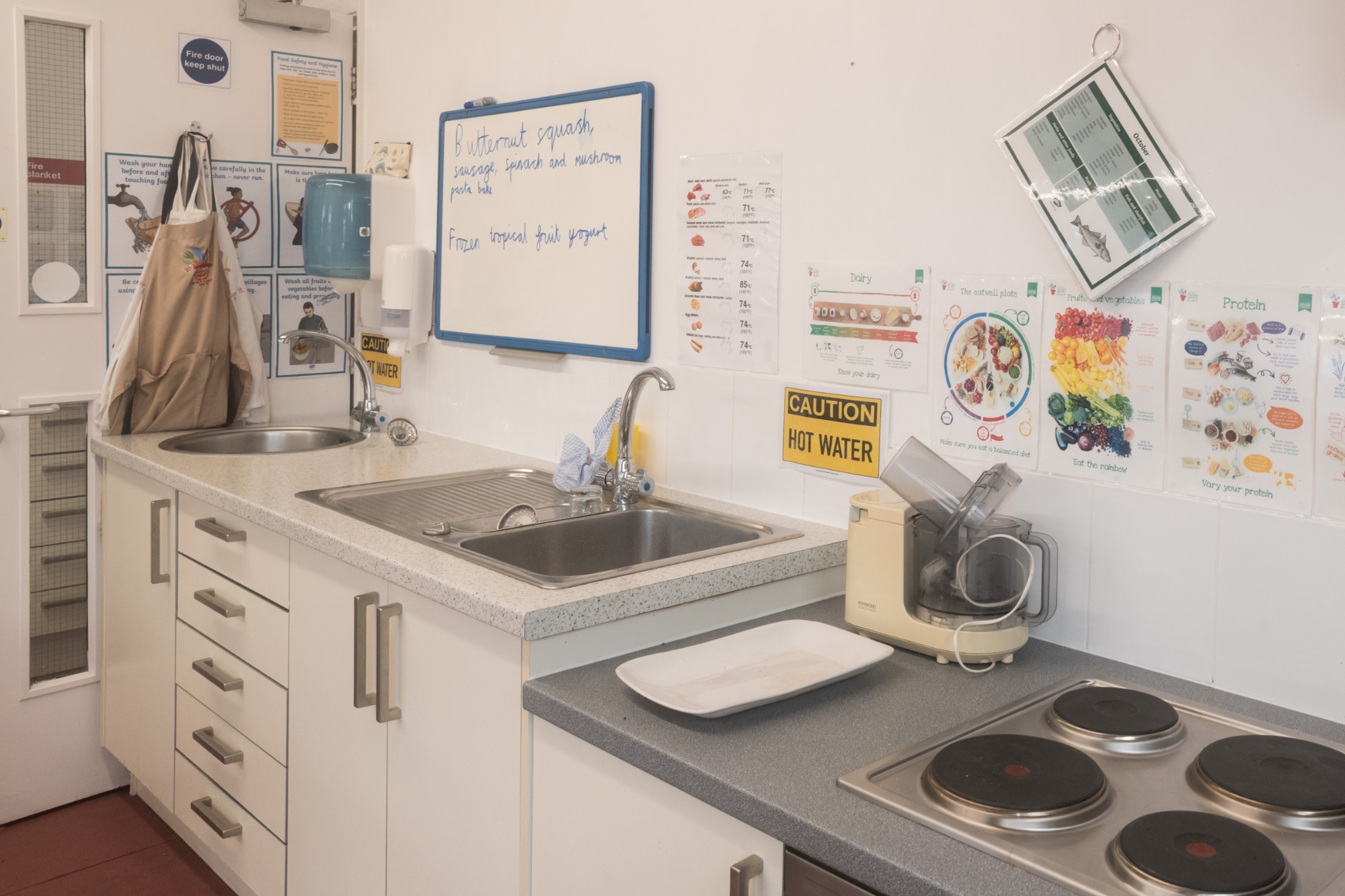
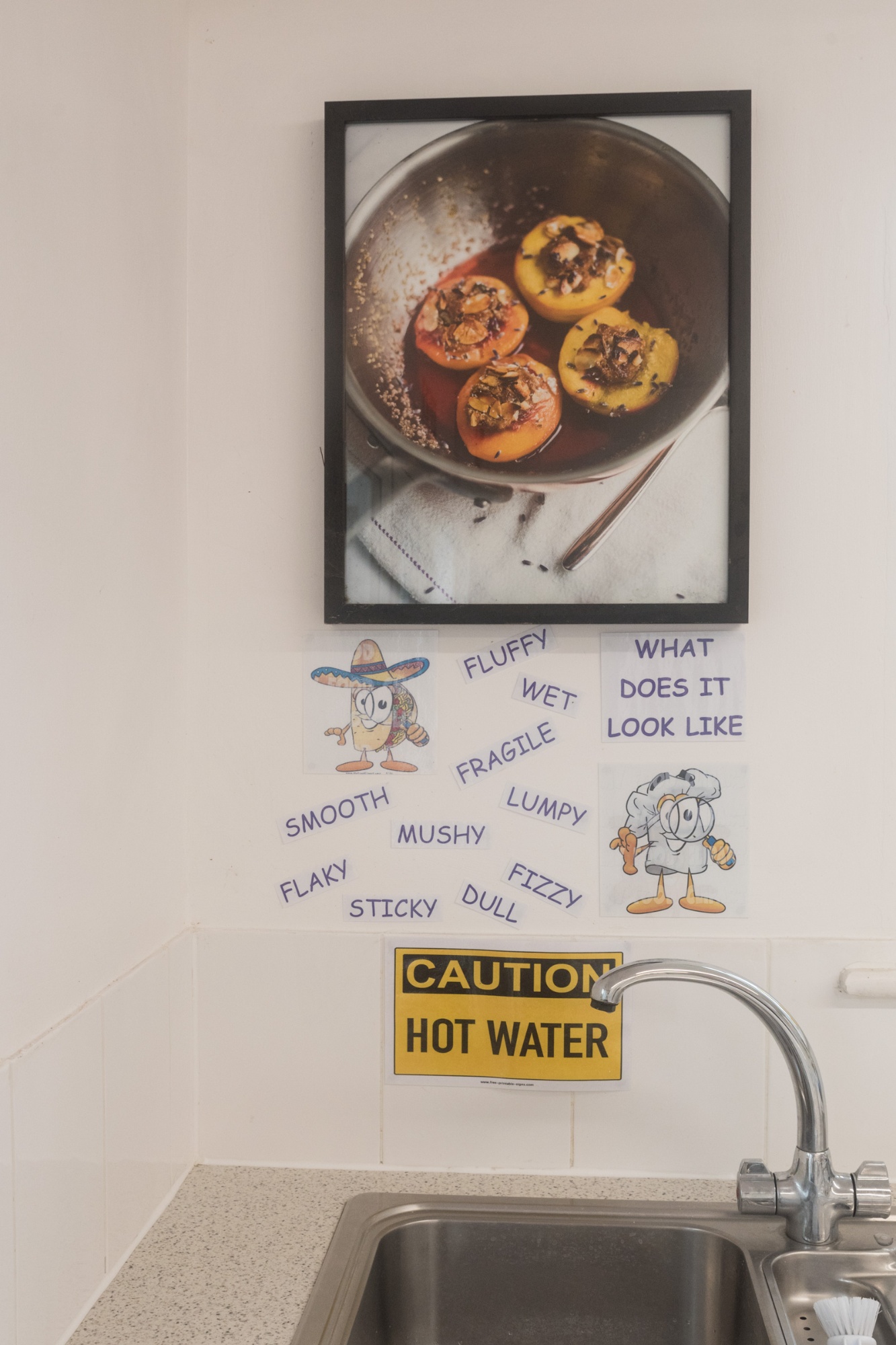
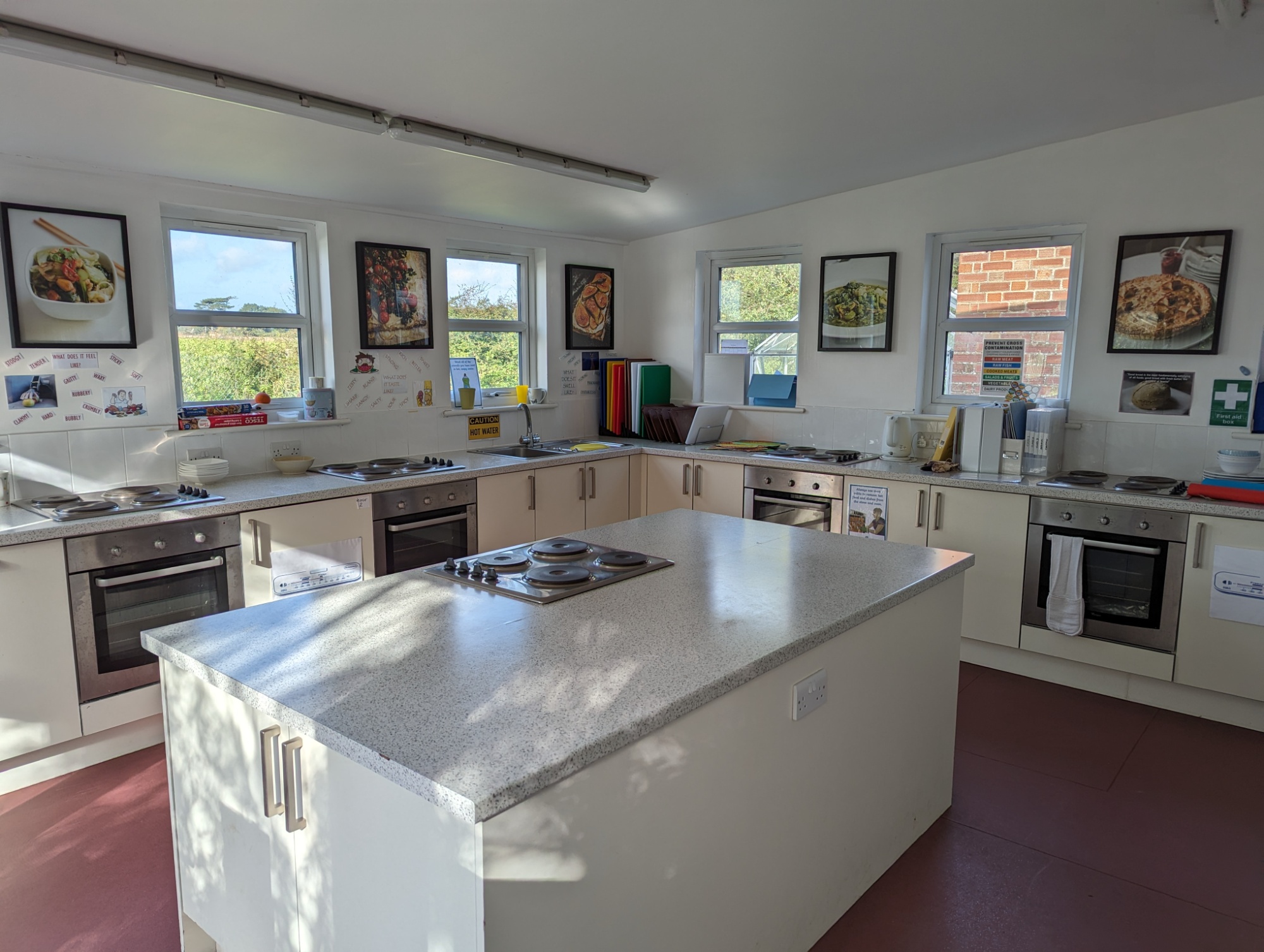
How it all began - Jamie Oliver’s Kitchen Garden Project
Many years ago we introduced food technology into our curriculum and soon realised that our children loved the lessons. It was around this time that Jamie Oliver’s deputy, Louise Holland, approached Orford Primary School, asking if we would be interested to be part of a new project. The result was that the Jamie Oliver Foundation and the then Headteacher established our teaching kitchen in 2009 with the help of EastFeast, Urban Myth and local businesses. Once the programme was up and running it was used as the catalyst for Jamie Oliver’s Kitchen Garden Project and The Jamie Oliver Food Foundation.
The programme at Orford was evaluated by Sheffield University. The children at Orford were compared against a control school of similar demographics in Suffolk, and the evaluation showed that the programme had a substantial main effect on the pupil’s liking of cooking, helping with cooking at home, and taste description. There was also good evidence of the programme's effect on pupils’ willingness to try new foods.
The Kitchen Now - What your child can expect from their cooking lesson
Our bright, spacious kitchen can cater for classes of up to 10 students, and was one of the first fully equipped primary school kitchen classrooms in the UK. It is accompanied by the garden where the children grow much of the produce that eventually reaches their plates. It has French windows leading out on to a deck with views over the Prayer Garden and access to an outdoor eating area.
Class 1 (Nursery - Year 1) cook healthy snacks or small dishes to take home; working on all the basic skills such as chopping, mixing and weighing.
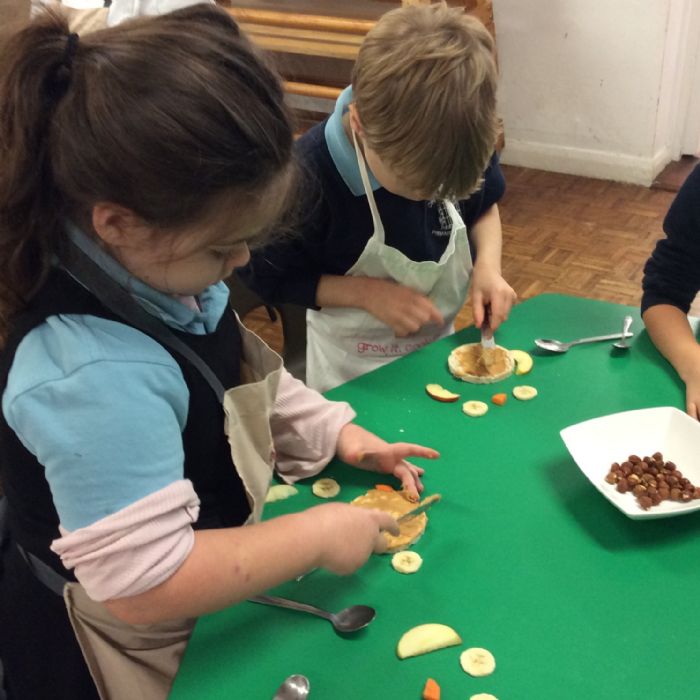
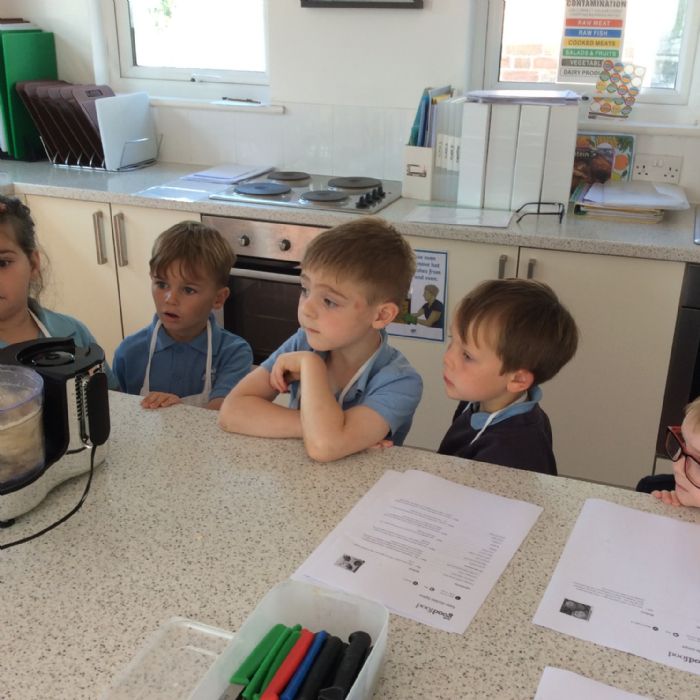
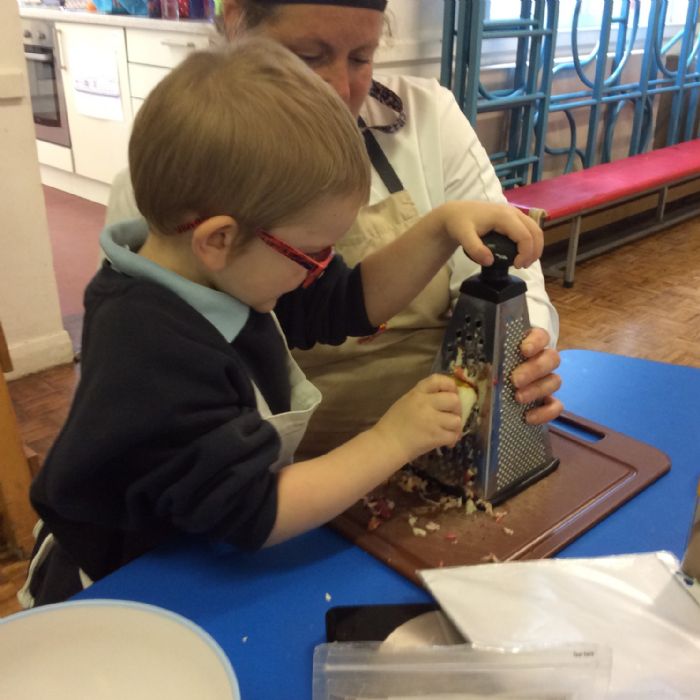
Classes 2 and 3 (Years 2-6) cook a two-course meal which they serve and eat with their cooking group and additional guests at lunchtimes. The children are taught to follow recipes, doubling or halving the ingredients if necessary.
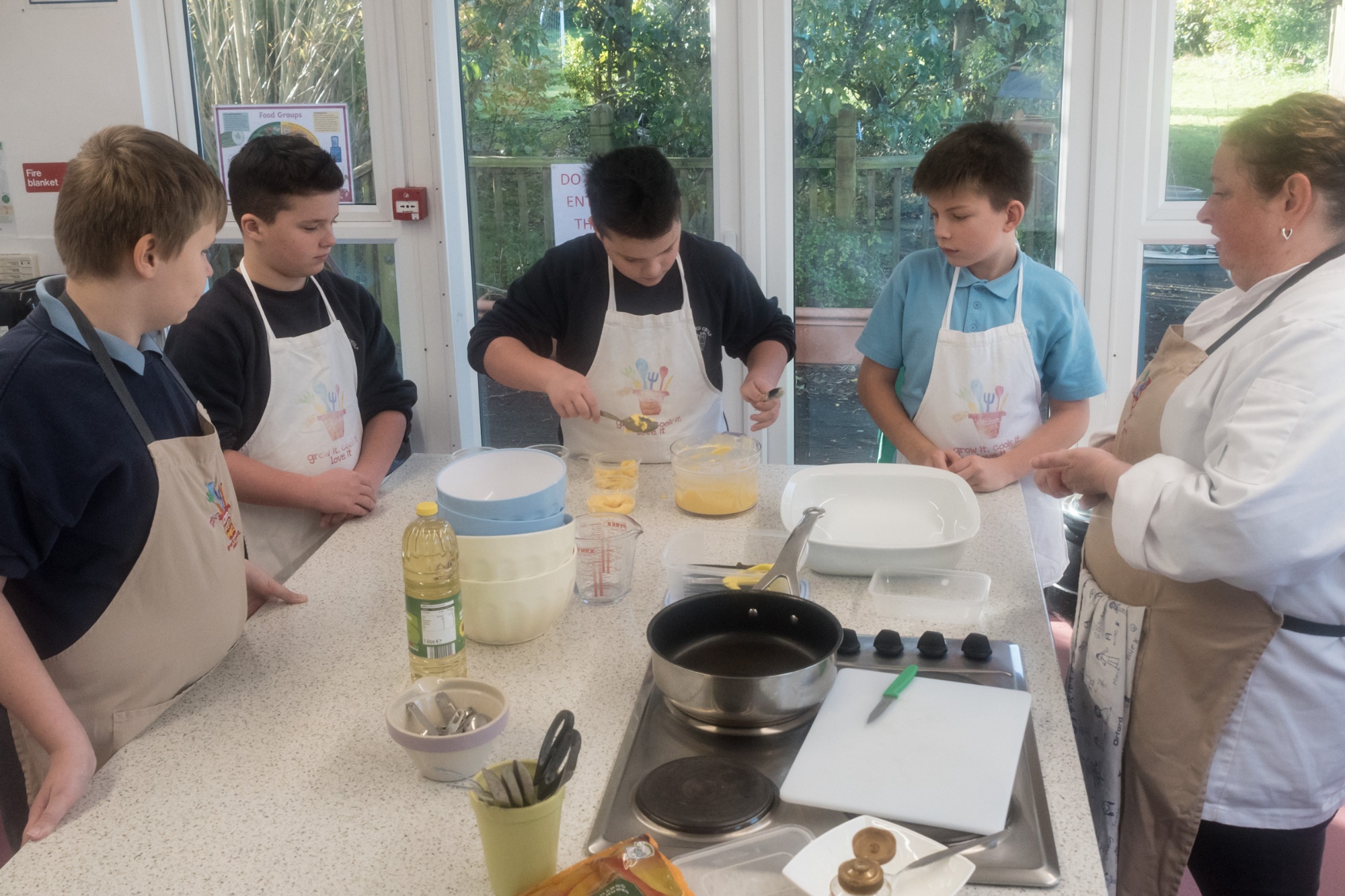
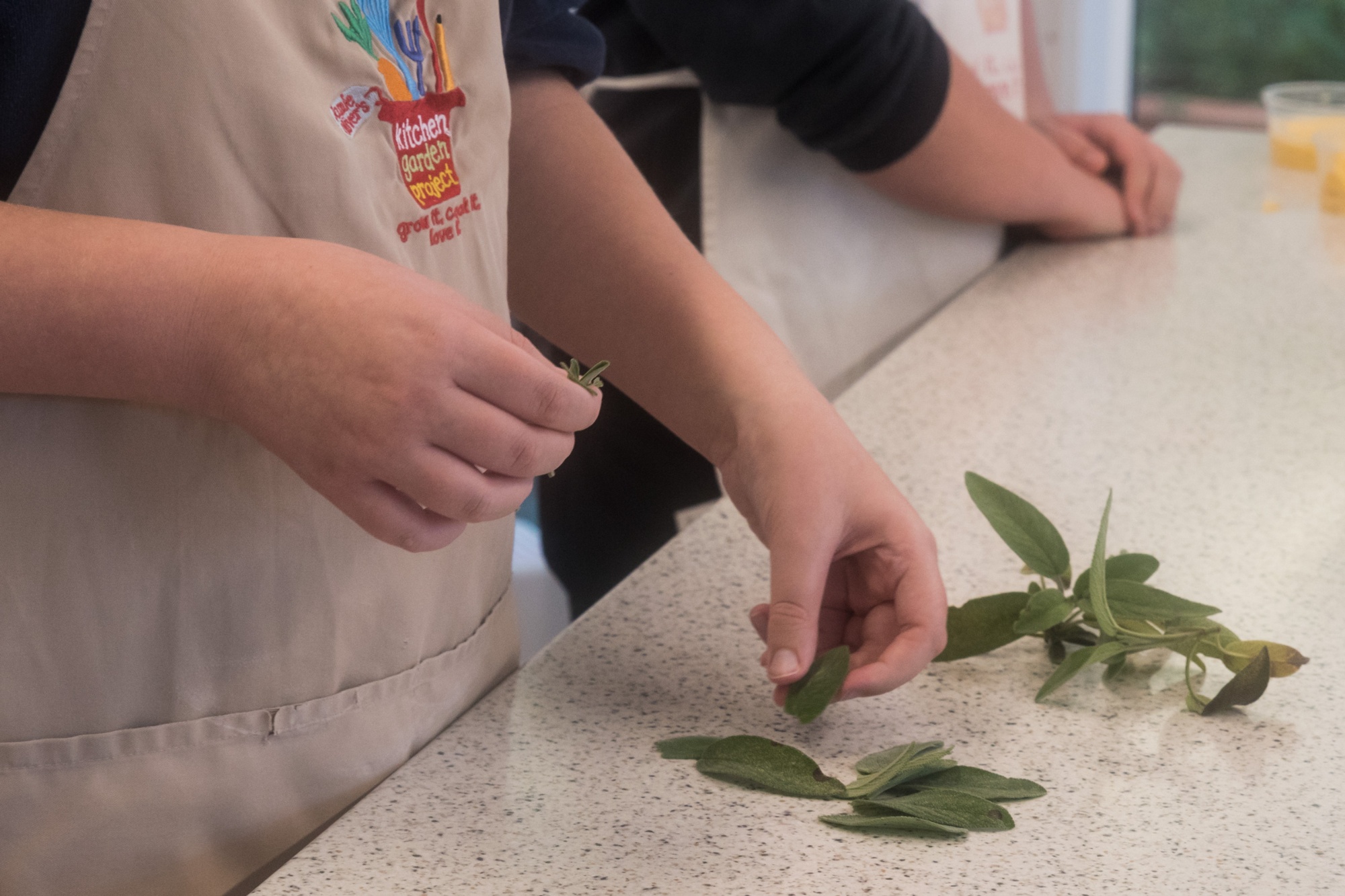
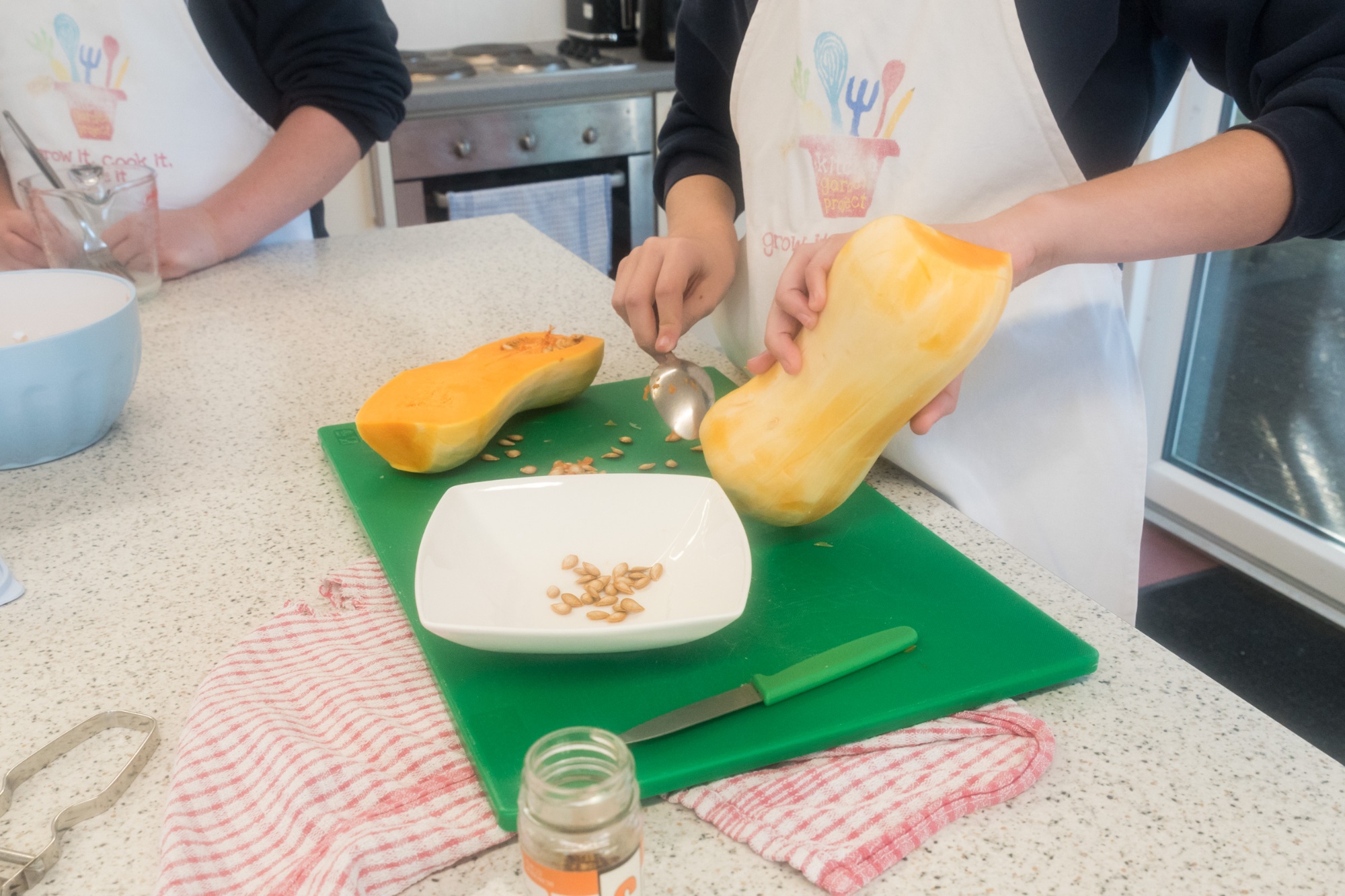
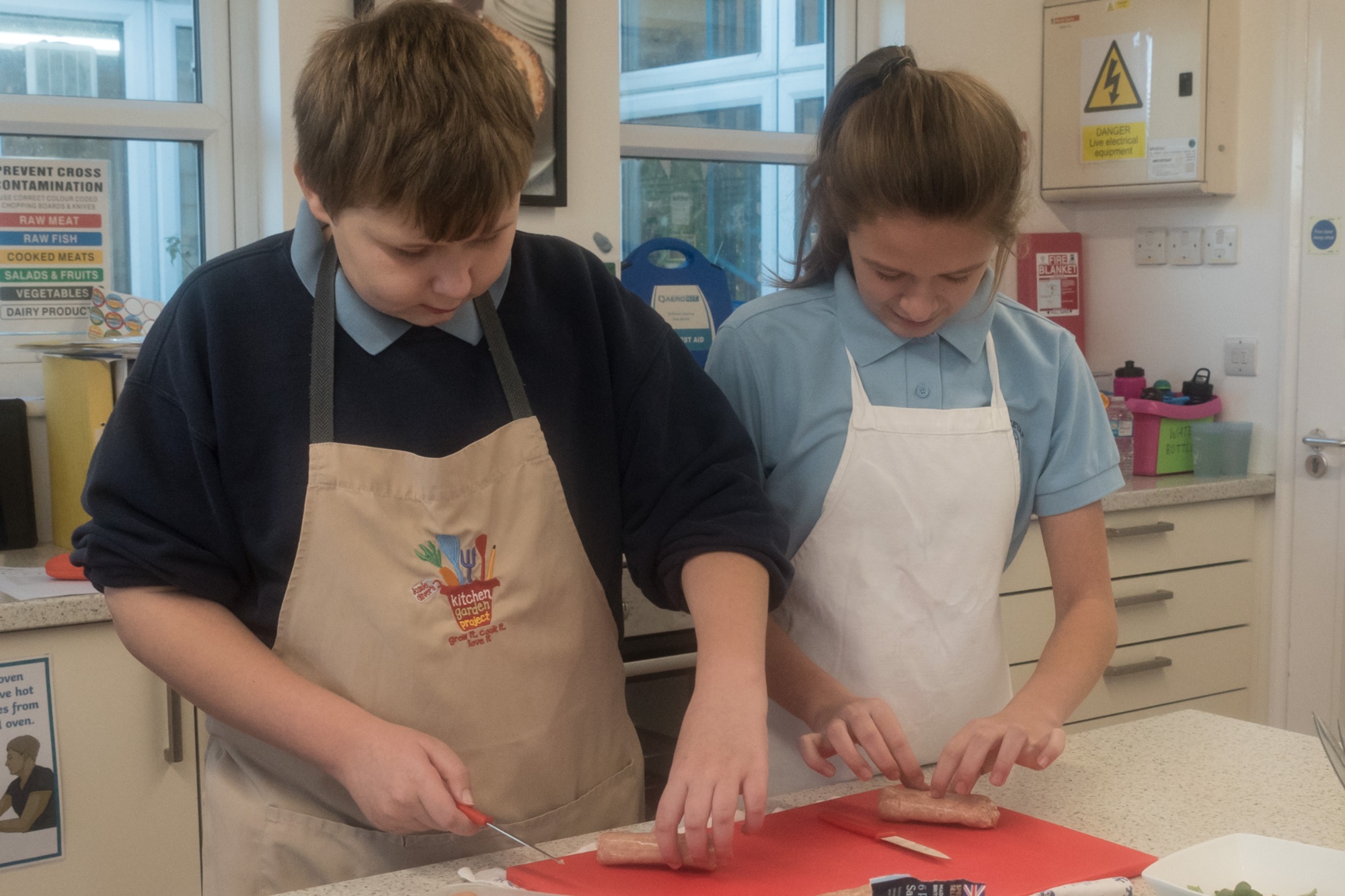
We have adapted our recipes over the years, and are now guided predominantly by pupil voice: favourites from home they'd like to learn to cook themselves, or more adventurous recipes they would like to try. Where we can, we use fresh produce from the school's kitchen garden, fruit generously donated by High House Fruit Farm in Sudbourne, and use our local shop, Orford General Store where we can.
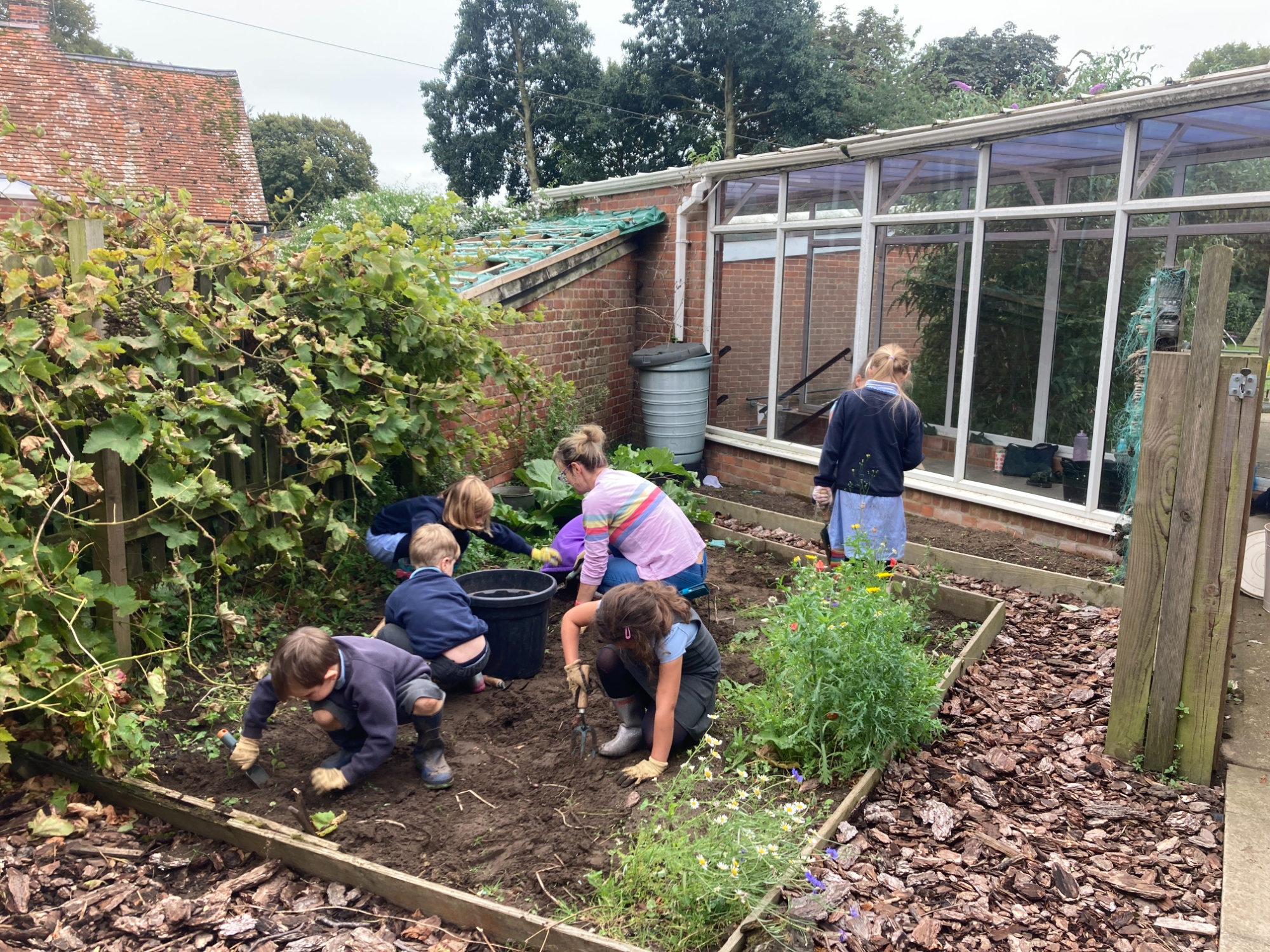
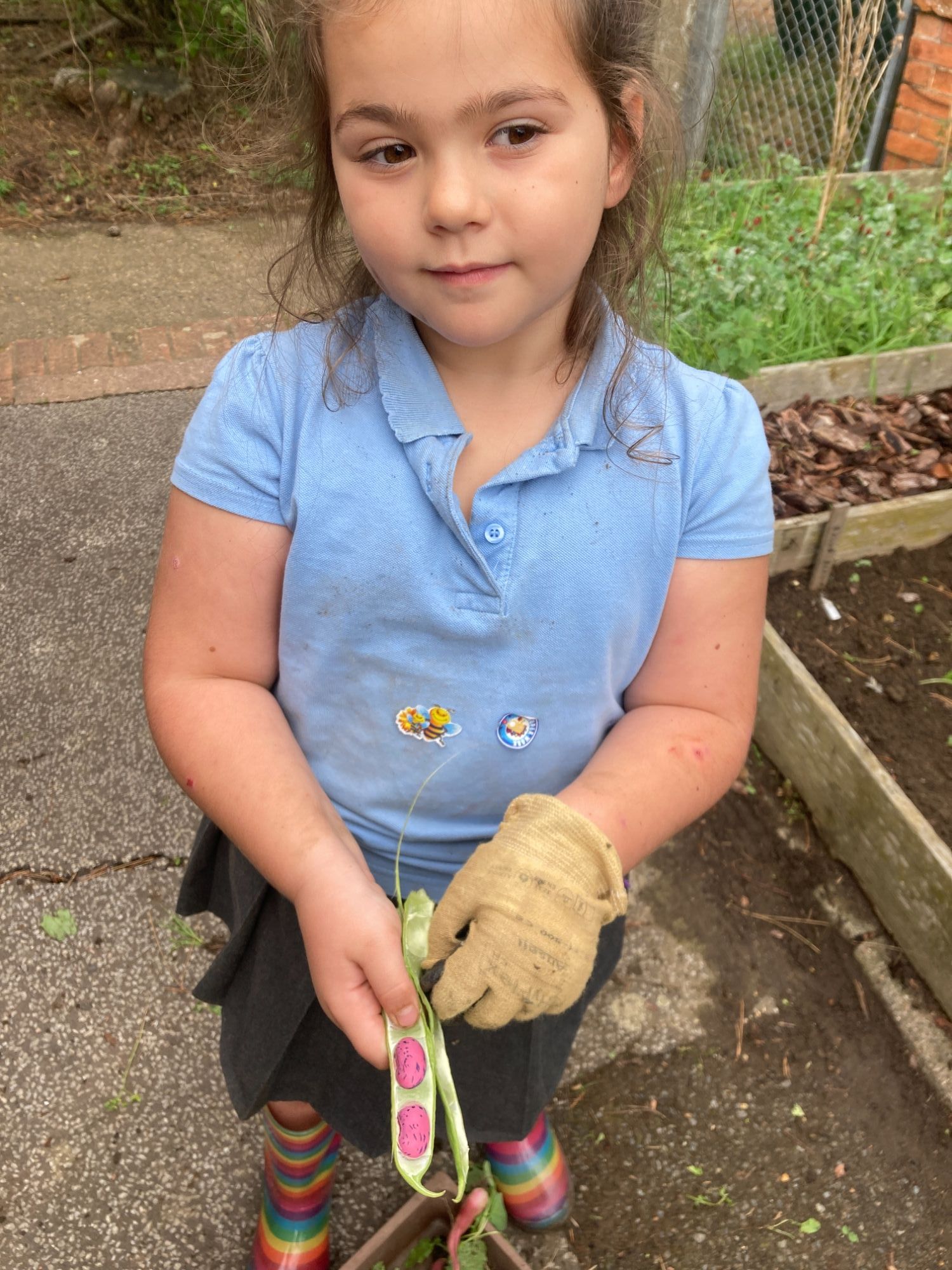
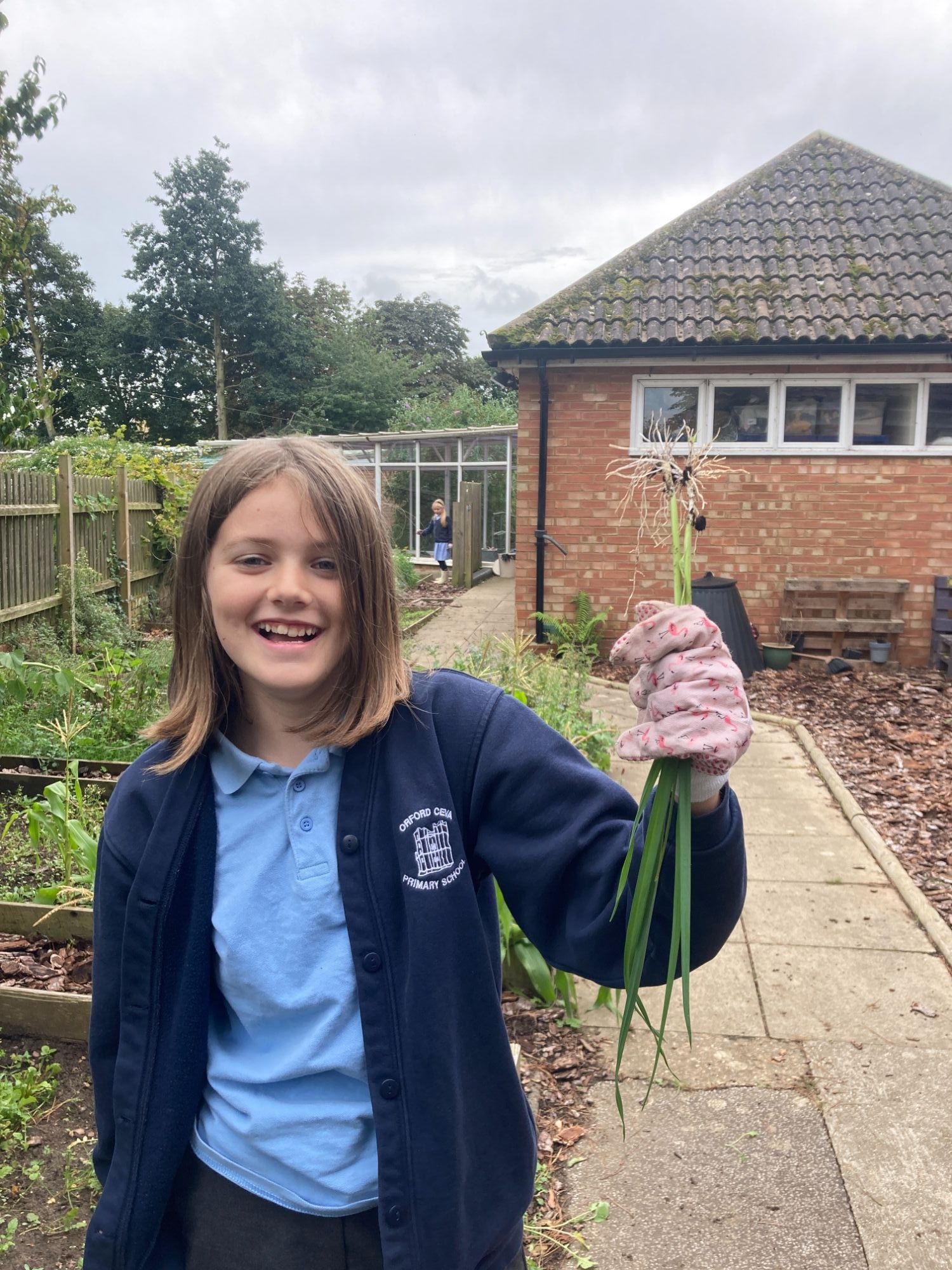
Over the years we have had visits from a variety of award-winning food professionals including Jamie Oliver, his mentor Gennaro Contaldo, David Grimwood from The Froize Restaurant at Chillesford, Jo Brennan from Orford's Pump Street Bakery and the Wright family from The Cake Shop in Woodbridge. On a number of occasions our children have showcased their skills in demonstrations at Aldeburgh Food Festival and photoshoots for the Jamie magazine.
The Gardens
Recently Orford achieved Level 5, the highest award in the Royal Horticultural Society Campaign for School Gardening benchmark scheme. This was the culmination of many years' work. Class 2, as part of their gardening lessons, have also achieved the bronze RSPB wild challenge award.

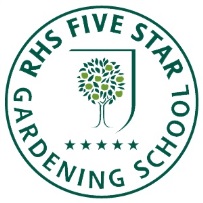
Our extensive gardens include:
- Polytunnel
This is used to start off and protect tender plants and grow salad leaves. This is also a sheltered place to work when the weather is less than kind.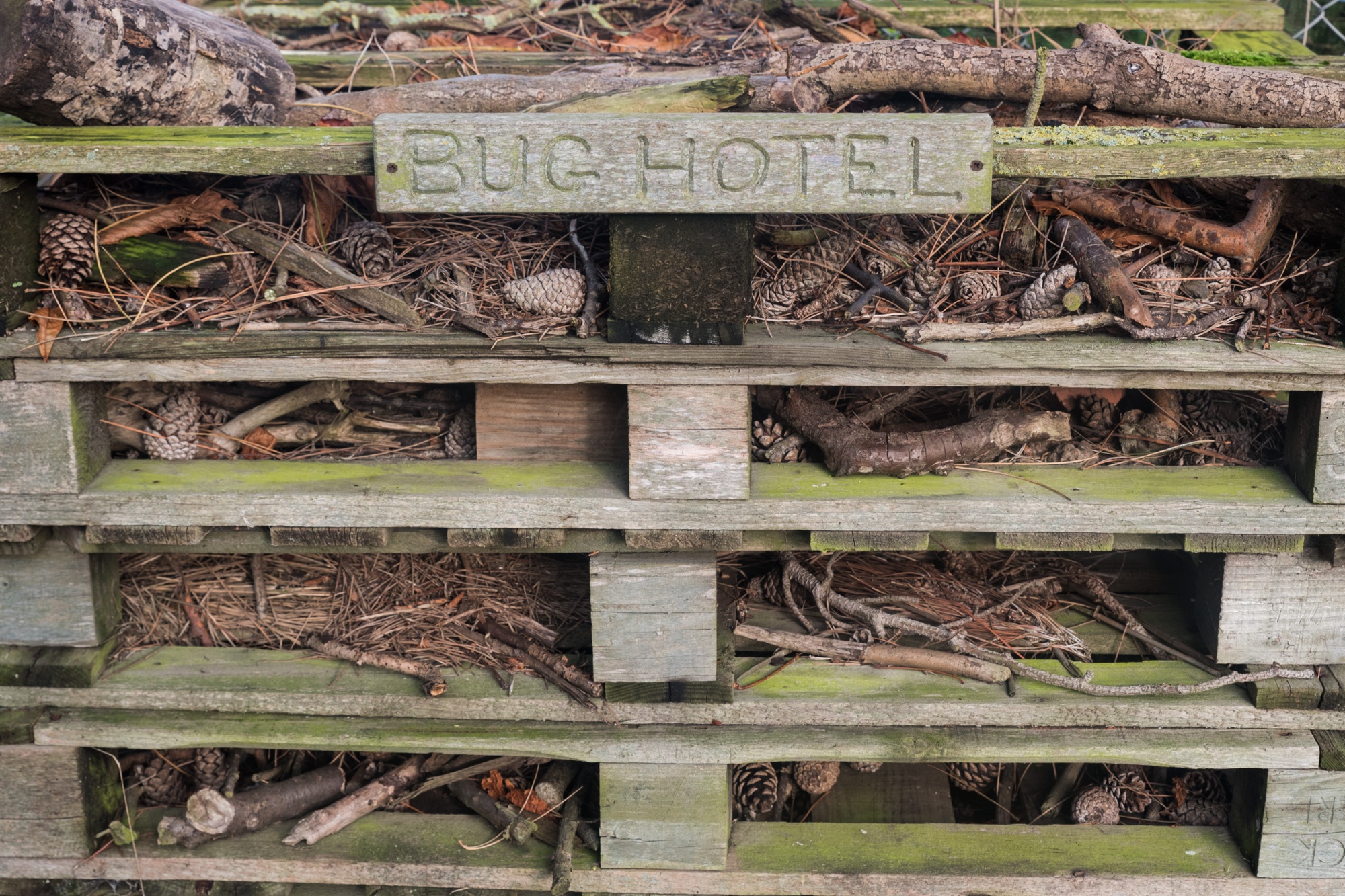
- The shed
Our well-stocked shed acts not only as a store for our extensive collection of tools, but also a teaching area, shelter and bird hide.
- Mini Orchard
We have a variety of different apple trees at the back of the school
- Compost area
We have four large compost heaps for bulky green waste. Our bins are home to a wide variety of ‘helping bugs’ (as one of our four-year-olds described them) as well as larger wildlife such as the occasional family of grass snakes!
- Herb bed and planters
These supply a wide variety of culinary herbs to the teaching kitchen, attract friendly insects and provide sensory experiences.
- Prayer garden - click here for more information
A quiet, reflective wildlife and sensory area built as part of the Queen's Platinum Jubilee Celebrations in 2021. This space includes a prayer shed and outdoor eating area used by Classes 2 and 3 for having the lunch they have cooked - when the weather allows.
Evaluation
The programme at Orford has been evaluated by Sheffield University. The children at Orford were compared against a control school of similar demographics in Suffolk, and the evaluation showed that the programme had a substantial main effect on the pupil’s liking of cooking, helping with cooking at home, and taste description. There was also good evidence of the programme's effect on pupils’ willingness to try new foods. The impact beyond the school gates was also revealed, and the take-home effects were evident, including children helping more with cooking at home, introducing their parents to new foods, and enthusing and engaging parents to cook.
